Current Incidents

congestion
M621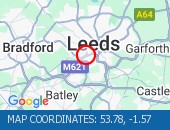 CongestionLocation : The M621 eastbound exit slip at junction J2 . Reason : Congestion. Status : Currently Active. Return To Normal : Normal traffic conditions are expected between 07:30 and 07:45 on 23 April 2024. M61
CongestionLocation : The M621 eastbound exit slip at junction J2 . Reason : Congestion. Status : Currently Active. Return To Normal : Normal traffic conditions are expected between 07:30 and 07:45 on 23 April 2024. M61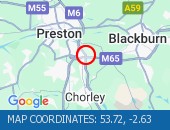 CongestionLocation : The M61 northbound exit slip at junction J9 . Reason : Congestion. Status : Currently Active. Return To Normal : Normal traffic conditions are expected between 07:30 and 07:45 on 23 April 2024. Delay : There are currently delays of 10 minutes against expected traffic. M54
CongestionLocation : The M61 northbound exit slip at junction J9 . Reason : Congestion. Status : Currently Active. Return To Normal : Normal traffic conditions are expected between 07:30 and 07:45 on 23 April 2024. Delay : There are currently delays of 10 minutes against expected traffic. M54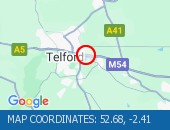 CongestionLocation : The M54 eastbound at junction J4 . Reason : Congestion. Status : Currently Active. Return To Normal : Normal traffic conditions are expected between 07:30 and 07:45 on 23 April 2024. Delay : There are currently delays of 10 minutes against expected traffic. M27
CongestionLocation : The M54 eastbound at junction J4 . Reason : Congestion. Status : Currently Active. Return To Normal : Normal traffic conditions are expected between 07:30 and 07:45 on 23 April 2024. Delay : There are currently delays of 10 minutes against expected traffic. M27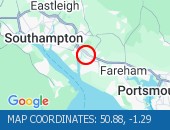 CongestionLocation : The M27 westbound between junctions J9and J8 . Reason : Congestion. Status : Currently Active. Return To Normal : Normal traffic conditions are expected between 07:30 and 07:45 on 23 April 2024. Delay : There are currently delays of 10 minutes against expected traffic. M25
CongestionLocation : The M27 westbound between junctions J9and J8 . Reason : Congestion. Status : Currently Active. Return To Normal : Normal traffic conditions are expected between 07:30 and 07:45 on 23 April 2024. Delay : There are currently delays of 10 minutes against expected traffic. M25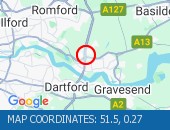 CongestionLocation : The M25 clockwise at junction J30 . Reason : Congestion. Status : Currently Active. Return To Normal : Normal traffic conditions are expected between 07:30 and 07:45 on 23 April 2024. Delay : There are currently delays of 10 minutes against expected traffic. M180
CongestionLocation : The M25 clockwise at junction J30 . Reason : Congestion. Status : Currently Active. Return To Normal : Normal traffic conditions are expected between 07:30 and 07:45 on 23 April 2024. Delay : There are currently delays of 10 minutes against expected traffic. M180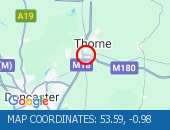 CongestionLocation : The M180 westbound between junction J2and the M18 . Reason : Congestion. Status : Currently Active. Return To Normal : Normal traffic conditions are expected between 07:30 and 07:45 on 23 April 2024. M11
CongestionLocation : The M180 westbound between junction J2and the M18 . Reason : Congestion. Status : Currently Active. Return To Normal : Normal traffic conditions are expected between 07:30 and 07:45 on 23 April 2024. M11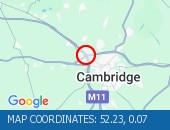 CongestionLocation : The M11 southbound at junction J14 . Reason : Congestion. Status : Currently Active. Return To Normal : Normal traffic conditions are expected between 07:15 and 07:30 on 23 April 2024. Delay : There are currently delays of 10 minutes against expected traffic. M1
CongestionLocation : The M11 southbound at junction J14 . Reason : Congestion. Status : Currently Active. Return To Normal : Normal traffic conditions are expected between 07:15 and 07:30 on 23 April 2024. Delay : There are currently delays of 10 minutes against expected traffic. M1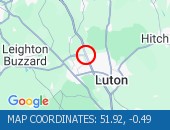 CongestionLocation : The M1 southbound at junction J11A . Reason : Congestion. Status : Currently Active. Return To Normal : Normal traffic conditions are expected between 06:30 and 06:45 on 23 April 2024. Delay : There are currently delays of 10 minutes against expected traffic. A663
CongestionLocation : The M1 southbound at junction J11A . Reason : Congestion. Status : Currently Active. Return To Normal : Normal traffic conditions are expected between 06:30 and 06:45 on 23 April 2024. Delay : There are currently delays of 10 minutes against expected traffic. A663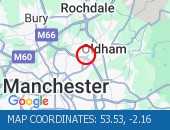 CongestionLocation : The A663 southbound at the junction with the M60 . Reason : Congestion. Status : Currently Active. Return To Normal : Normal traffic conditions are expected between 06:45 and 07:00 on 23 April 2024. A643
CongestionLocation : The A663 southbound at the junction with the M60 . Reason : Congestion. Status : Currently Active. Return To Normal : Normal traffic conditions are expected between 06:45 and 07:00 on 23 April 2024. A643 CongestionLocation : The A643 northbound. Reason : Congestion. Status : Currently Active. Return To Normal : Normal traffic conditions are expected between 07:30 and 07:45 on 23 April 2024. Delay : There are currently delays of 10 minutes against expected traffic. A585
CongestionLocation : The A643 northbound. Reason : Congestion. Status : Currently Active. Return To Normal : Normal traffic conditions are expected between 07:30 and 07:45 on 23 April 2024. Delay : There are currently delays of 10 minutes against expected traffic. A585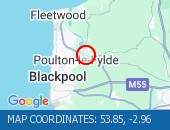 CongestionLocation : The A585 northbound between the A586 Hardhorn and the junction with the A588 North. Reason : Congestion. Status : Currently Active. Return To Normal : Normal traffic conditions are expected between 06:45 and 07:00 on 23 April 2024. A57
CongestionLocation : The A585 northbound between the A586 Hardhorn and the junction with the A588 North. Reason : Congestion. Status : Currently Active. Return To Normal : Normal traffic conditions are expected between 06:45 and 07:00 on 23 April 2024. A57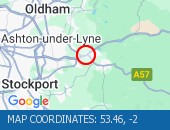 CongestionLocation : The A57 eastbound between the M67and the junction with the A6018 . Reason : Congestion. Status : Currently Active. Return To Normal : Normal traffic conditions are expected between 07:15 and 07:30 on 23 April 2024. Delay : There are currently delays of 10 minutes against expected traffic. A5
CongestionLocation : The A57 eastbound between the M67and the junction with the A6018 . Reason : Congestion. Status : Currently Active. Return To Normal : Normal traffic conditions are expected between 07:15 and 07:30 on 23 April 2024. Delay : There are currently delays of 10 minutes against expected traffic. A5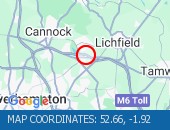 CongestionLocation : The A5 southbound between the A5195and the junction with the A461 . Reason : Congestion. Status : Currently Active. Return To Normal : Normal traffic conditions are expected between 07:00 and 07:15 on 23 April 2024. A46
CongestionLocation : The A5 southbound between the A5195and the junction with the A461 . Reason : Congestion. Status : Currently Active. Return To Normal : Normal traffic conditions are expected between 07:00 and 07:15 on 23 April 2024. A46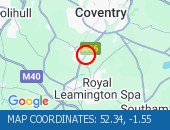 CongestionLocation : The A46 southbound between the A45 Coventry West and the junction with the A452 . Reason : Congestion. Status : Currently Active. Return To Normal : Normal traffic conditions are expected between 07:30 and 07:45 on 23 April 2024. Delay : There are currently delays of 10 minutes against expected traffic. A453
CongestionLocation : The A46 southbound between the A45 Coventry West and the junction with the A452 . Reason : Congestion. Status : Currently Active. Return To Normal : Normal traffic conditions are expected between 07:30 and 07:45 on 23 April 2024. Delay : There are currently delays of 10 minutes against expected traffic. A453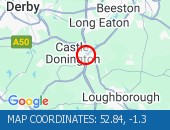 CongestionLocation : The A453 northbound between the junctions with the A6and the M1 . Reason : Congestion. Status : Currently Active. Return To Normal : Normal traffic conditions are expected between 06:45 and 07:00 on 23 April 2024. A45
CongestionLocation : The A453 northbound between the junctions with the A6and the M1 . Reason : Congestion. Status : Currently Active. Return To Normal : Normal traffic conditions are expected between 06:45 and 07:00 on 23 April 2024. A45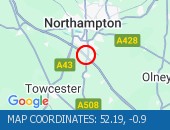 CongestionLocation : The A45 eastbound at the junction with the M1 . Reason : Congestion. Status : Currently Active. Return To Normal : Normal traffic conditions are expected between 07:15 and 07:30 on 23 April 2024. A417
CongestionLocation : The A45 eastbound at the junction with the M1 . Reason : Congestion. Status : Currently Active. Return To Normal : Normal traffic conditions are expected between 07:15 and 07:30 on 23 April 2024. A417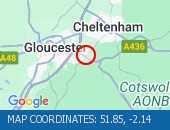 CongestionLocation : The A417 southbound between the A46and the junction with the A436 . Reason : Congestion. Status : Currently Active. Return To Normal : Normal traffic conditions are expected between 07:30 and 07:45 on 23 April 2024. Delay : There are currently delays of 10 minutes against expected traffic. A414
CongestionLocation : The A417 southbound between the A46and the junction with the A436 . Reason : Congestion. Status : Currently Active. Return To Normal : Normal traffic conditions are expected between 07:30 and 07:45 on 23 April 2024. Delay : There are currently delays of 10 minutes against expected traffic. A414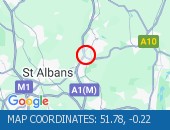 CongestionLocation : The junction of the A414and the A1M. Reason : Congestion. Status : Currently Active. Return To Normal : Normal traffic conditions are expected between 07:00 and 07:15 on 23 April 2024. Delay : There are currently delays of 10 minutes against expected traffic. A30
CongestionLocation : The junction of the A414and the A1M. Reason : Congestion. Status : Currently Active. Return To Normal : Normal traffic conditions are expected between 07:00 and 07:15 on 23 April 2024. Delay : There are currently delays of 10 minutes against expected traffic. A30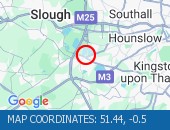 CongestionLocation : The A30 eastbound between the junctions with the M25and the A308 . Reason : Congestion. Status : Currently Active. Return To Normal : Normal traffic conditions are expected between 06:45 and 07:00 on 23 April 2024. A3
CongestionLocation : The A30 eastbound between the junctions with the M25and the A308 . Reason : Congestion. Status : Currently Active. Return To Normal : Normal traffic conditions are expected between 06:45 and 07:00 on 23 April 2024. A3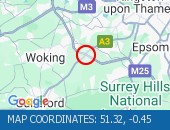 CongestionLocation : The A3 southbound exit slip to the M25 . Reason : Congestion. Status : Currently Active. Return To Normal : Normal traffic conditions are expected between 06:45 and 07:00 on 23 April 2024. Delay : There are currently delays of 10 minutes against expected traffic. A27
CongestionLocation : The A3 southbound exit slip to the M25 . Reason : Congestion. Status : Currently Active. Return To Normal : Normal traffic conditions are expected between 06:45 and 07:00 on 23 April 2024. Delay : There are currently delays of 10 minutes against expected traffic. A27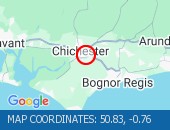 CongestionLocation : The A27 eastbound between the junctions with the A286and the A259 Chichester East. Reason : Congestion. Status : Currently Active. Return To Normal : Normal traffic conditions are expected between 07:15 and 07:30 on 23 April 2024. Delay : There are currently delays of 10 minutes against expected traffic. A249
CongestionLocation : The A27 eastbound between the junctions with the A286and the A259 Chichester East. Reason : Congestion. Status : Currently Active. Return To Normal : Normal traffic conditions are expected between 07:15 and 07:30 on 23 April 2024. Delay : There are currently delays of 10 minutes against expected traffic. A249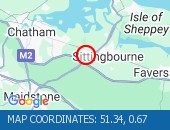 CongestionLocation : The A249 southbound between the junctions with the A2500and the M2 . Reason : Congestion. Status : Currently Active. Return To Normal : Normal traffic conditions are expected between 06:45 and 07:00 on 23 April 2024. Delay : There are currently delays of 10 minutes against expected traffic. A23
CongestionLocation : The A249 southbound between the junctions with the A2500and the M2 . Reason : Congestion. Status : Currently Active. Return To Normal : Normal traffic conditions are expected between 06:45 and 07:00 on 23 April 2024. Delay : There are currently delays of 10 minutes against expected traffic. A23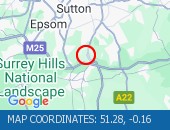 CongestionLocation : The A23 northbound between the junctions with the M23and the A237 . Reason : Congestion. Status : Currently Active. Return To Normal : Normal traffic conditions are expected between 07:15 and 07:30 on 23 April 2024. A19
CongestionLocation : The A23 northbound between the junctions with the M23and the A237 . Reason : Congestion. Status : Currently Active. Return To Normal : Normal traffic conditions are expected between 07:15 and 07:30 on 23 April 2024. A19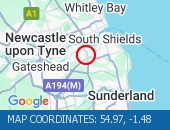 CongestionLocation : The A19 northbound between the A194and the junction with the A185 . Reason : Congestion. Status : Currently Active. Return To Normal : Normal traffic conditions are expected between 07:30 and 07:45 on 23 April 2024. Delay : There are currently delays of 10 minutes against expected traffic.
CongestionLocation : The A19 northbound between the A194and the junction with the A185 . Reason : Congestion. Status : Currently Active. Return To Normal : Normal traffic conditions are expected between 07:30 and 07:45 on 23 April 2024. Delay : There are currently delays of 10 minutes against expected traffic.
no delay
M4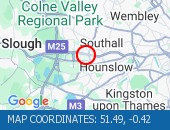 AccidentLocation : The M4 eastbound between junctions J4and J3 . Lane Closures : Lane one is closed. Reason : Road traffic collision. Status : Currently Active. Time To Clear : The event is expected to clear between 08:00 and 08:15 on 23 April 2024. Return To Normal : Normal traffic conditions are expected between 08:45 and 09:00 on 23 April 2024. Lanes Closed : There is one of four lanes closed. A50
AccidentLocation : The M4 eastbound between junctions J4and J3 . Lane Closures : Lane one is closed. Reason : Road traffic collision. Status : Currently Active. Time To Clear : The event is expected to clear between 08:00 and 08:15 on 23 April 2024. Return To Normal : Normal traffic conditions are expected between 08:45 and 09:00 on 23 April 2024. Lanes Closed : There is one of four lanes closed. A50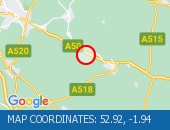 RoadOrCarriagewayOrLaneManagementLocation : The A50 eastbound between the junctions with the A521 Blythe Bridge East and the A522 . Lane Closures : Lane two is closed. Reason : Road Management. Status : Currently Active. Time To Clear : The event is expected to clear between 09:30 and 09:45 on 23 April 2024. Return To Normal : Normal traffic conditions are expected between 09:30 and 09:45 on 23 April 2024. Delay : There are currently delays of 40 minutes against expected traffic. Lanes Closed : There is one of two lanes closed. A34
RoadOrCarriagewayOrLaneManagementLocation : The A50 eastbound between the junctions with the A521 Blythe Bridge East and the A522 . Lane Closures : Lane two is closed. Reason : Road Management. Status : Currently Active. Time To Clear : The event is expected to clear between 09:30 and 09:45 on 23 April 2024. Return To Normal : Normal traffic conditions are expected between 09:30 and 09:45 on 23 April 2024. Delay : There are currently delays of 40 minutes against expected traffic. Lanes Closed : There is one of two lanes closed. A34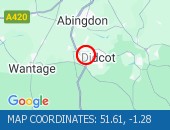 Broken down vehicleLocation : The A34 southbound between the junctions with the A4130and the A4185 . Lane Closures : Lane one is closed. Reason : Broken down vehicle. Status : Currently Active. Time To Clear : The event is expected to clear between 08:15 and 08:30 on 23 April 2024. Return To Normal : Normal traffic conditions are expected between 08:15 and 08:30 on 23 April 2024. Lanes Closed : There is one of two lanes closed. A14
Broken down vehicleLocation : The A34 southbound between the junctions with the A4130and the A4185 . Lane Closures : Lane one is closed. Reason : Broken down vehicle. Status : Currently Active. Time To Clear : The event is expected to clear between 08:15 and 08:30 on 23 April 2024. Return To Normal : Normal traffic conditions are expected between 08:15 and 08:30 on 23 April 2024. Lanes Closed : There is one of two lanes closed. A14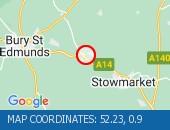 RoadOrCarriagewayOrLaneManagementLocation : The A14 eastbound between junctions J47Aand J49 Stowmarket West. Reason : Contraflow. Status : Currently Active. Period : from 00:12 on 25 October 2023 to 06:00 on 30 April 2024. Lanes Closed : There are lane closures. A1
RoadOrCarriagewayOrLaneManagementLocation : The A14 eastbound between junctions J47Aand J49 Stowmarket West. Reason : Contraflow. Status : Currently Active. Period : from 00:12 on 25 October 2023 to 06:00 on 30 April 2024. Lanes Closed : There are lane closures. A1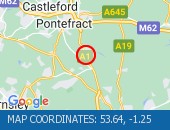 Broken down vehicleLocation : The A1 northbound between the junctions with the A639and the M62 . Lane Closures : Lane one is closed. Reason : Broken down vehicle. Status : Currently Active. Time To Clear : The event is expected to clear between 07:45 and 08:00 on 23 April 2024. Return To Normal : Normal traffic conditions are expected between 08:15 and 08:30 on 23 April 2024. Lanes Closed : There is one of two lanes closed.
Broken down vehicleLocation : The A1 northbound between the junctions with the A639and the M62 . Lane Closures : Lane one is closed. Reason : Broken down vehicle. Status : Currently Active. Time To Clear : The event is expected to clear between 07:45 and 08:00 on 23 April 2024. Return To Normal : Normal traffic conditions are expected between 08:15 and 08:30 on 23 April 2024. Lanes Closed : There is one of two lanes closed.
Advice and Features

Local and Regional Weather ForecasesGet the latest weather forecasts for your local area or region, showing the location of rain, snow or inclement weather that may affect your journey.
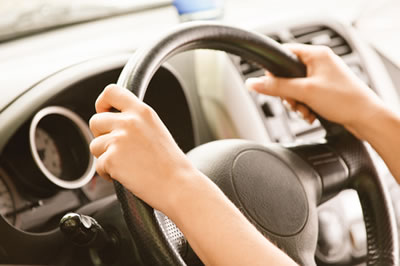
Maximum Life from your BatteryOne of the most frustrating aspects of running a car is when your battery dies. Avoid problems from flat batteries by following four simple tips.

What to do after an accidentYou've just had a minor accident in your vehicle. What should you do? Here is our advice and a few basic tips on what to do after an accident.

Tips for a successful test driveTest drives. They're exciting but nerve-wracking. Here's a list of 18 things you'll need to check to bag yourself a bargain, not a banger.





